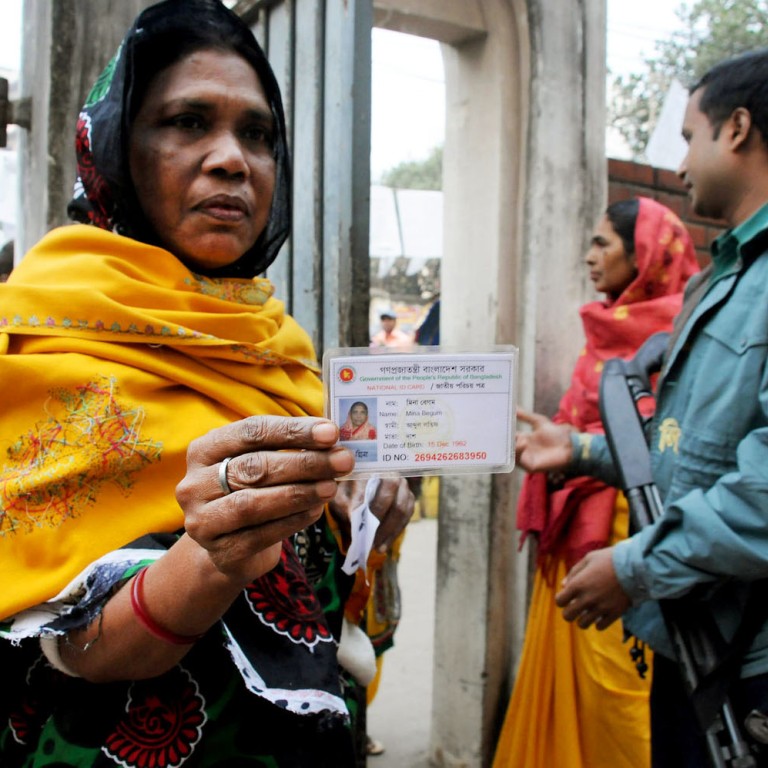
Violence mars one-sided election in Bangladesh
Voting stations firebombed, 15 die as opposition boycotts poll
Thousands of protesters firebombed polling stations and 18 people were killed as violence flared across Bangladesh yesterday during a walkover election boycotted by the opposition.
Police opened fire at protesters as they torched more than 200 polling stations and stole and burned ballot papers in a bid to sabotage the poll.
Two of those killed were beaten to death while guarding polling stations in northern districts, which bore the brunt of the violence.
"We've seen thousands of protesters attack polling booths and our personnel at a number of locations with petrol bombs," said Syed Abu Sayem, police chief of the northern district of Bogra.
"The situation is extremely volatile," he added after describing how thousands of ballot papers had been ceremoniously set on fire.
Most of the other victims were opposition activists shot by police, while a driver died of his injuries from a petrol bomb attack on his truck.
Police put the overall toll at 18 although the opposition said 22 of its supporters were killed.

Bangladesh has a grim history of political violence, including the assassinations of two presidents and 19 failed coup attempts since its independence from Pakistan in 1971.
"We were forced to open fire after thousands of them attacked us with guns and small bombs," said Mokbul Hossain, police chief in the northern town of Parbatipur.
"It was a co-ordinated attack. They managed to seize some ballot papers and they tried to steal our weapons."
In the capital Dhaka, whose streets were largely empty apart from thousands of troops, police confirmed three petrol bombings of polling stations.
Tens of thousands of troops were deployed across the country after around 150 people were killed in the build-up to the election, but they failed to stem the bloodshed.
The ruling Awami League has accused the main opposition Bangladesh Nationalist Party (BNP) of orchestrating the violence and has kept its leader under de facto house arrest.

The opposition had demanded Prime Minister Sheikh Hasina make way for a neutral caretaker government before the election.
It staged weeks of deadly protests, including transport blockades and calls for strikes, to press its demands.
With the opposition trying to enforce a general strike to wreck the polls, officials acknowledged the turnout was poor.
The outcome is not in doubt as voting took place in only 147 of the 300 parliamentary constituencies. Awami League candidates or allies had a clear run in the remaining 153.
Hasina's government says it had to hold the vote after parliament's five-year term expired.
"It's a victory for democracy," senior leader of the ruling party Tofael Ahmed told reporters, accusing the opposition of fomenting an atmosphere of fear.
The BNP, whose leader Khaleda Zia has been confined to her home for a week, said the vote was a joke.
"The country has rejected these farcical elections which were meaningless, laughable and universally unacceptable," said deputy leader Fakhrul Islam Alamgir.
Those who did vote showed little enthusiasm.
"I don't really want to vote as I don't think it's a proper election with only the ruling party candidates participating," Anwar Hossain said in Dhaka's Azimpur neighbourhood.
"But I am scared about what might happen if I don't as the candidates might think I am anti-Awami League."
